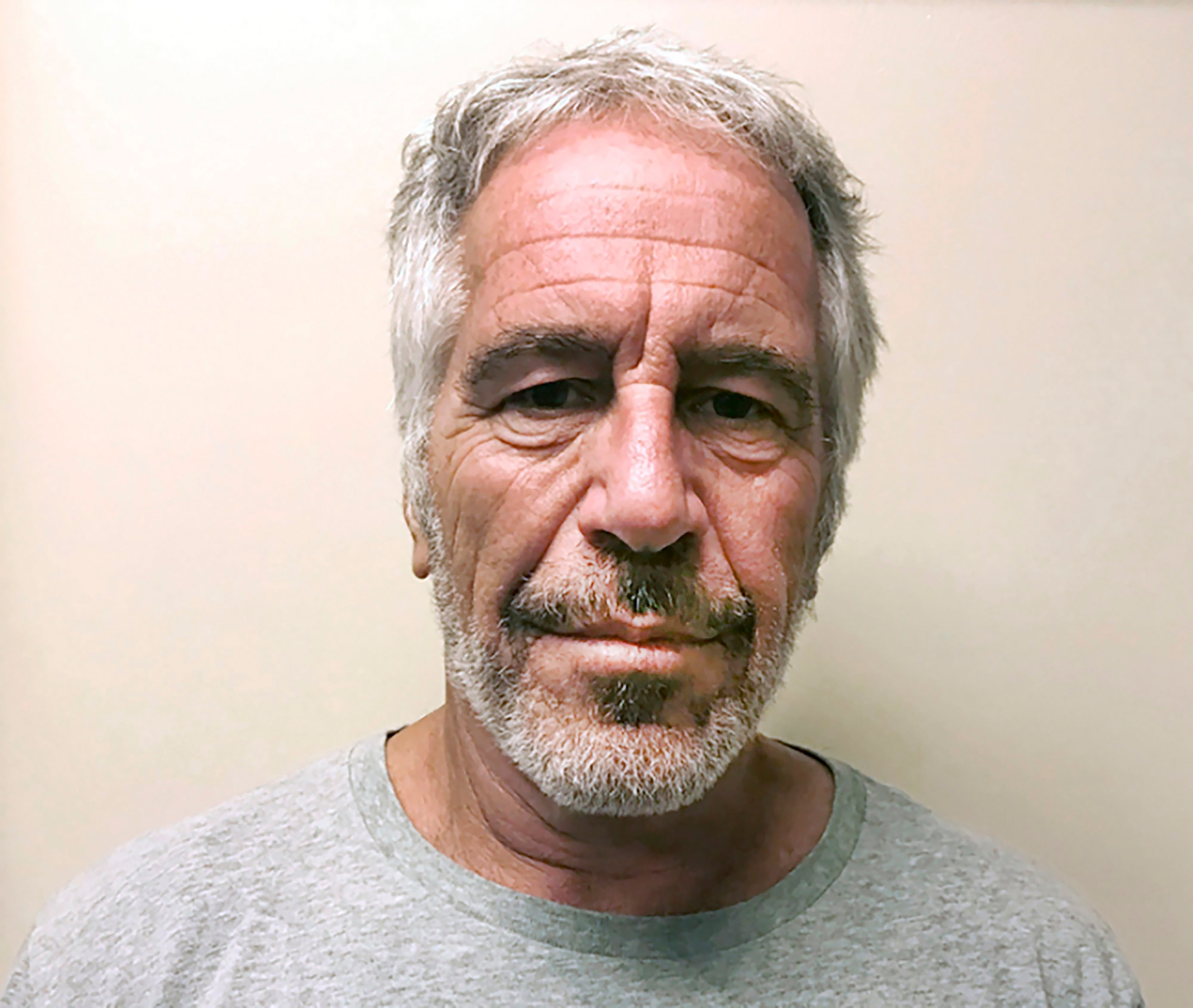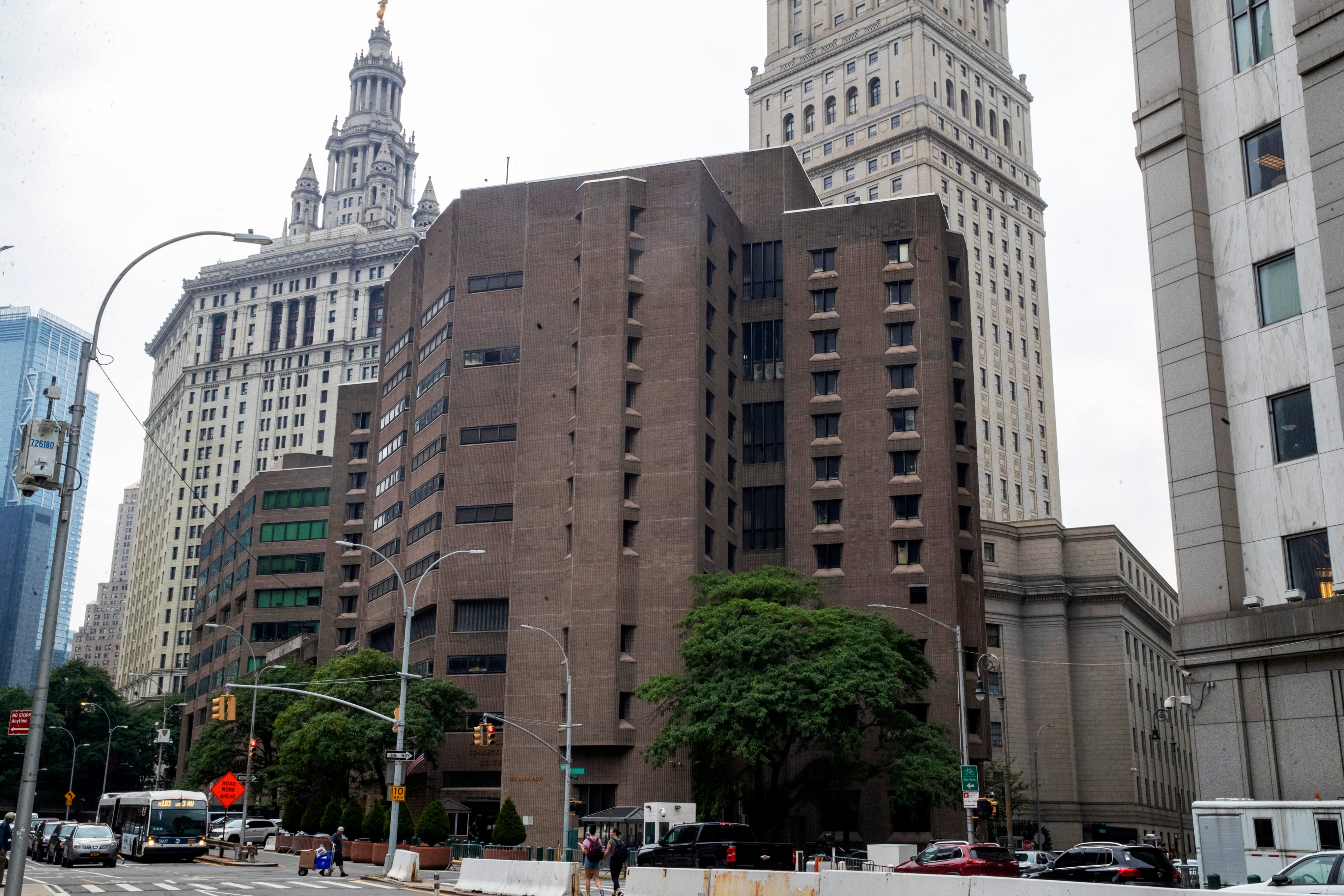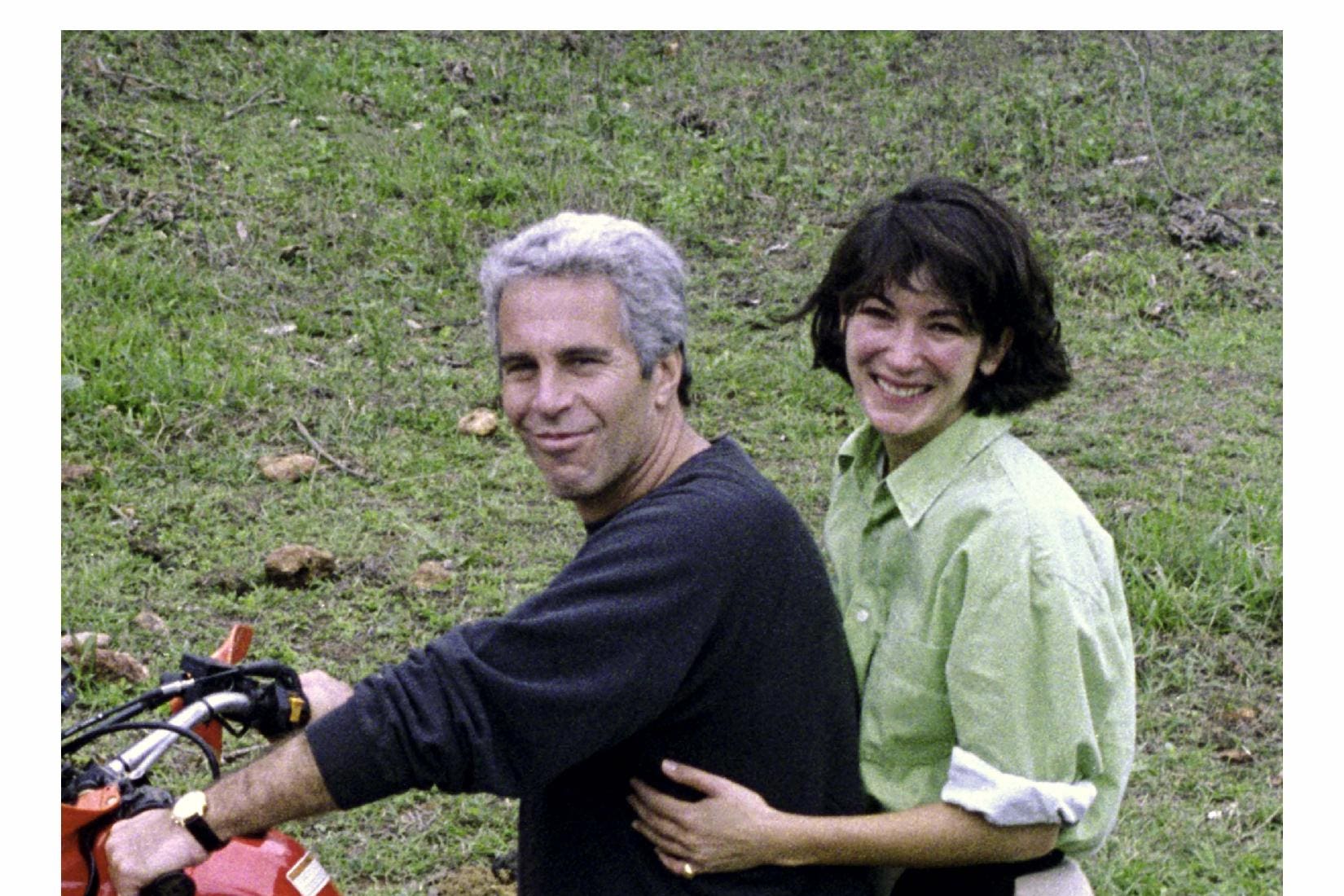Scathing watchdog blames Jeffrey Epstein’s suicide on prison staff leaving him unchecked in cell
The DOJ’s Office of the Inspector General released its report on Tuesday, finding that multiple prison staff members failed to check on the disgraced financier despite him being on suicide watch
Your support helps us to tell the story
From reproductive rights to climate change to Big Tech, The Independent is on the ground when the story is developing. Whether it's investigating the financials of Elon Musk's pro-Trump PAC or producing our latest documentary, 'The A Word', which shines a light on the American women fighting for reproductive rights, we know how important it is to parse out the facts from the messaging.
At such a critical moment in US history, we need reporters on the ground. Your donation allows us to keep sending journalists to speak to both sides of the story.
The Independent is trusted by Americans across the entire political spectrum. And unlike many other quality news outlets, we choose not to lock Americans out of our reporting and analysis with paywalls. We believe quality journalism should be available to everyone, paid for by those who can afford it.
Your support makes all the difference.A scathing report from the Justice Department (DOJ) watchdog has outlined “numerous and serious failures” by the Bureau of Prisons leading up to the suicide of convicted paedophile Jeffrey Epstein.
The DOJ’s Office of the Inspector General released its report on Tuesday, finding that multiple prison staff members failed to check on the disgraced financier in the hours leading up to his death – despite him being on suicide watch.
Under Bureau of Prison (BOP) policy, staff are required to check on all inmates in solitary confinement at least once every 30 minutes.
In a clear violation of this policy, no checks were made for almost eight hours from around 10.40pm on 9 August until around 6.30am on 10 August – when the prolific sex offender was found dead.
Staff at the Manhattan jail also failed to assign Epstein a fellow inmate in his cell and left him with access to additional bed linen which he used to kill himself, the report finds.
These failings came even after Epstein was believed to have attempted suicide on 23 July – about two weeks before he died.
“The OIG’s investigation and review identified numerous and serious failures by MCC New York staff, including multiple violations of MCC New York and BOP policies and procedures,” the report states.
“The OIG found that MCC New York staff failed on August 9 to carry out the Psychology Department’s directive that Epstein be assigned a cellmate, and that an MCC New York supervisor allowed Epstein to make an unmonitored telephone call the evening before his death.
“Additionally, we found that staff failed to undertake required measures designed to make sure that Epstein and other SHU inmates were accounted for and safe, such as conducting inmate counts and 30-minute rounds, searching inmate cells, and ensuring adequate supervision of the SHU and the functionality of the video camera surveillance system.”
The damning report states that a “combination of negligence, misconduct, and outright job performance failures” all contributed to an environment where “one of the BOP’s most notorious inmates was provided with the opportunity to take his own life”.

His death resulted in “significant questions being asked about the circumstances of his death, how it could have been allowed to happen, and most importantly, depriving his numerous victims, many of whom were underage girls at the time of the alleged crimes, of their ability to seek justice through the criminal justice process,” the report states.
Despite the damning list of failures, the watchdog concluded that there was no evidence to contradict the FBI’s finding that there was no crime involved in his death.
“We did not find, for example, evidence that anyone was present in the SHU area where Epstein was housed during the relevant timeframe other than the inmates who were locked in their assigned cells,” the report states.
The report adds: “All staff members who were interviewed by the OIG said they did not know of any information suggesting that Epstein’s cause of death was something other than suicide.
“Likewise, none of the interviewed inmates provided any credible information that Epstein’s cause of death was something other than suicide.”
Autopsy findings were also consistent with suicide, the report says.
Epstein – a billionaire financier who mingled with the rich and famous – was found dead in his prison cell at the Metropolitan Correctional Center in Manhattan, New York, on 10 August 2019.
At the time of his death, he was awaiting trial on a string of sex-trafficking charges.
The New York medical examiner determined that he had died by suicide.
Following widespread speculation and conspiracy theories, an FBI investigation also determined there was “no criminality” in his death.
The watchdog report outlines how Epstein was placed in the Special Housing Unit (SHU) at the Manhattan prison on 7 July – one day after his arrival at the facility – due to the “media coverage of his case and inmate awareness of his notoriety”.
He remained in the SHU, where inmates are kept separate from the general population and are locked in their cells for around 23 hours a day, until his death one month later on 10 August.
In the SHU, prison staff are required to check on inmates every 30 minutes, carry out multiple inmate counts during every 24-hour period, search SHU common areas and at least five cells daily, and search the entire SHU every week.
On 9 July, Epstein was evaluated by prison psychologists and was not found to be a suicide risk.

But on 23 July, prison staff responded to his cell for an apparent suicide attempt.
He was placed on suicide watch – but only for a day.
Epstein told staff he believed his cellmate had tried to kill him but then later said he didn’t know what had happened and asked to continue to be housed with the cellmate.
Due to his apparent suicide attempt, Epstein should have been in a cell with an appropriate inmate.
A cellmate was assigned to his cell but was then moved out of the cell on 9 August and no one else was moved in to replace them – just hours before he died by suicide.
On 8 August, the report reveals that Epstein met with his attorneys in prison and signed a new Last Will and Testament.
The following day – hours before his death – around 2,000 pages of documents about Epstein and his co-conspirator Ghislaine Maxwell were released as part of a civil case. Epstein also made a final unrecorded, unmonitored phone call to someone he had a personal relationship with, in violation of policy.
Epstein was locked in his cell at around 8pm on the night of 9 August with no cellmate and an excess of prison blankets, linens and clothing in his cell.
At around 6.30am the next morning, an officer delivering breakfast found him in his cell and began performing CPR.
It is unclear when he was last checked on or when his cell was last searched. The report reveals that prison staff not only violated policy by failing to carry out the required checks but also falsified documents to appear as though more checks had been carried out.
Two officers were later charged with falsifying BOP records but the charges were later dropped.
A malfunction of the facility’s security cameras also meant there was a lack of footage to review as part of the probe.
In a damning conclusion, the watchdog outlines that this is not the first time it has found “significant job performance and management failures on the part of BOP personnel and widespread disregard of BOP policies that are designed to ensure that inmates are safe, secure, and in good health”.

The report refers to the death of notorious mobster James “Whitey” Bulger as an example.
In December, a damning OIG report found that “serious” failures from prison officials ultimately led to Bulger’s murder just 12 hours after he was moved to a notoriously dangerous jail infamously dubbed “misery mountain”.
Based on its findings over Epstein’s death, the OIG made eight recommendations to the BOP to address the issues in the report and said there was an urgency for the DOJ and BOP leadership to “address the chronic staffing, surveillance, safety and security, and related problems” plaguing America’s federal prison system.
Epstein’s arrest and charges in New York in 2019 came after he was previously convicted in 2008 of procuring an underage girl for prostitution.
In a now widely-condemned sweetheart plea deal in Florida, Epstein pleaded guilty to one charge and was sentenced to just 18 months in prison – most of which he served out of prison in a work-release program.
On his release, he was ordered to register as a sex offender.
His accomplice Maxwell was found guilty of sex trafficking at a high-profile trial in New York in December 2021 and is currently serving a 20-year prison sentence.
If you are experiencing feelings of distress, or are struggling to cope, you can speak to the Samaritans, in confidence, on 116 123 (UK and ROI), email jo@samaritans.org, or visit the Samaritans website to find details of your nearest branch.If you are based in the USA, and you or someone you know needs mental health assistance right now, call the National Suicide Prevention Helpline on 1-800-273-TALK (8255). This is a free, confidential crisis hotline that is available to everyone 24 hours a day, seven days a week.
If you are in another country, you can go to www.befrienders.org to find a helpline near you.
Subscribe to Independent Premium to bookmark this article
Want to bookmark your favourite articles and stories to read or reference later? Start your Independent Premium subscription today.




Join our commenting forum
Join thought-provoking conversations, follow other Independent readers and see their replies
Comments